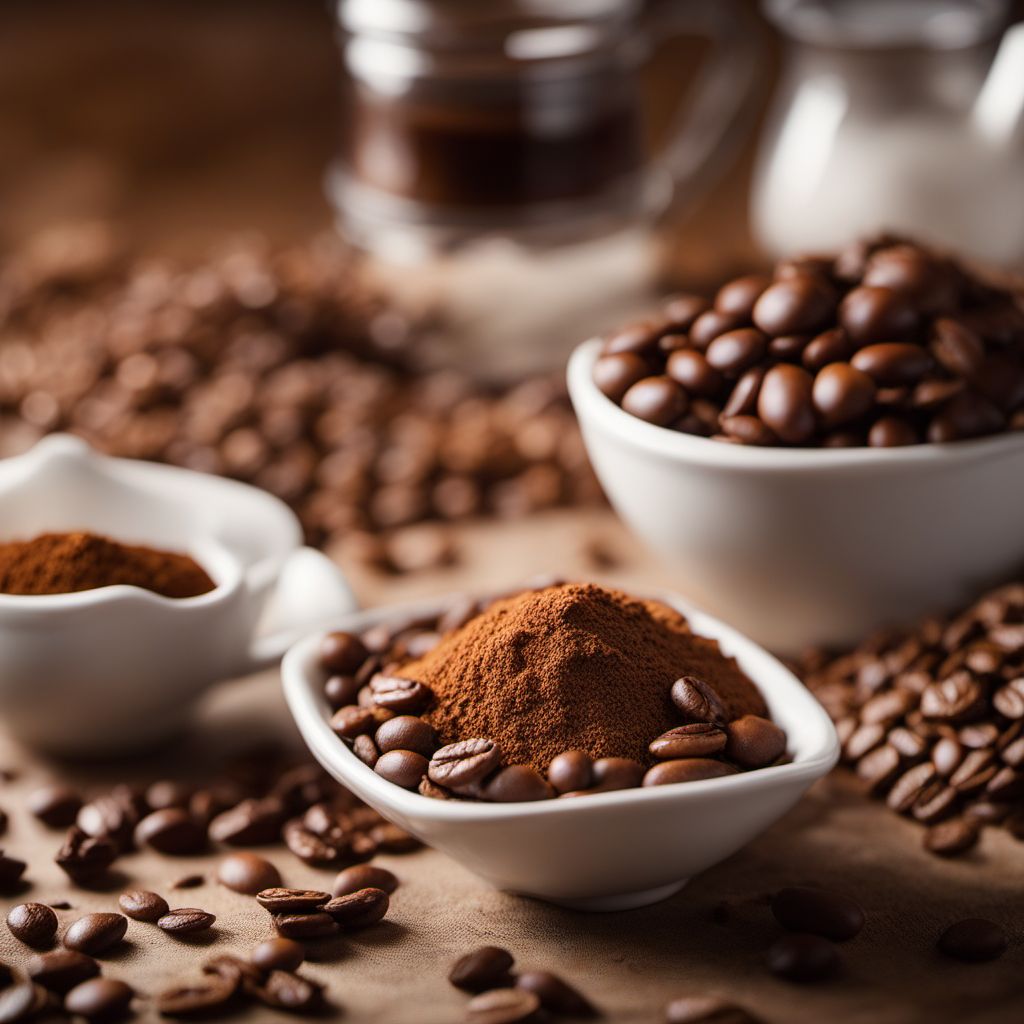
Ingredient
Minor imitate coffee ingredients
The Coffee Alternatives
Minor imitate coffee ingredients encompass a variety of substances, including roasted grains, seeds, and roots. These ingredients are often used as coffee substitutes due to their similar flavors and aromas. They can be brewed or infused to create beverages that mimic the taste of coffee or used as additives to enhance the flavor of traditional coffee drinks.
Origins and history
The use of coffee substitutes dates back centuries, with various cultures developing their own alternatives to coffee. Roasted grains like barley and chicory root have been used as coffee substitutes in Europe since the 18th century. Other ingredients like dandelion root, carob, and roasted acorns have also been used in different parts of the world. Today, these ingredients continue to be popular among those seeking caffeine-free options or unique flavor profiles.
Nutritional information
Minor imitate coffee ingredients are generally low in calories and fat. They are often caffeine-free, making them suitable for individuals who are sensitive to caffeine or prefer to avoid it. Some ingredients, like dandelion root, may also offer additional health benefits, such as supporting liver function or aiding digestion.
Allergens
There are no known allergens associated with minor imitate coffee ingredients. However, individuals with specific allergies or sensitivities should always check the ingredients list to ensure they are not allergic to any of the components.
How to select
When selecting minor imitate coffee ingredients, look for products that are made from high-quality, organic ingredients. Read the labels carefully to ensure that the product does not contain any additives or artificial flavors. It is also important to consider personal preferences and choose ingredients that align with desired flavor profiles.
Storage recommendations
Minor imitate coffee ingredients should be stored in a cool, dry place, away from direct sunlight. It is best to keep them in airtight containers to maintain their freshness and prevent moisture absorption. Proper storage can help preserve their flavors and aromas for an extended period.
How to produce
Producing minor imitate coffee ingredients can involve various processes, such as roasting, grinding, and blending. Some ingredients, like roasted grains, can be prepared at home by roasting the grains and grinding them into a fine powder. Others, like dandelion root or carob, may require specialized equipment or processing methods.
Preparation tips
Minor imitate coffee ingredients can be used in a variety of ways. They can be brewed like coffee, either alone or in combination with other ingredients, to create caffeine-free alternatives. They can also be added as flavor enhancers to traditional coffee drinks, providing unique taste profiles. Additionally, they can be used in baking or cooking to add depth and complexity to recipes.
Culinary uses
Minor imitate coffee ingredients are commonly used as substitutes for coffee in various cultures and cuisines. They are often brewed and consumed as standalone beverages or used as additives to enhance the flavor of traditional coffee drinks. They can also be incorporated into recipes for desserts, baked goods, and savory dishes to add a coffee-like taste.
Availability
Minor imitate coffee ingredients are commonly available in health food stores, specialty shops, and online retailers that cater to individuals seeking caffeine-free alternatives or unique flavors.




